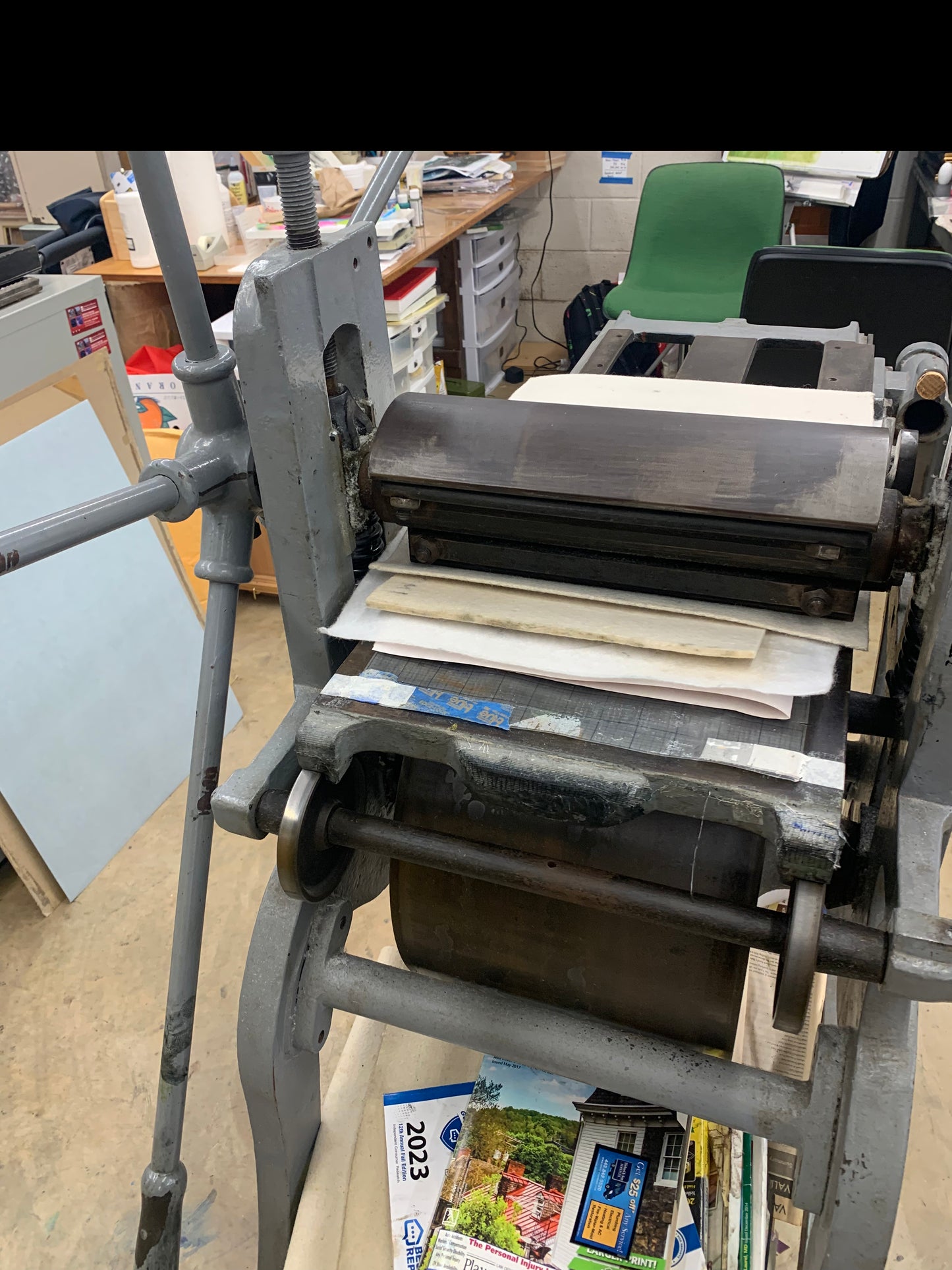createdbybarbara
Strong and Humble Dancer | Circles
Strong and Humble Dancer | Circles
Couldn't load pickup availability
Share
Strong and Humble Dancer Series
Adinkra Symbol: Dwennimmen
13 3/4" x 10 3/4"
Strathmore 103 lb Printmaking Paper (off-white)
Oil-Based Ink
2024
The Process | Using the intaglio printmaking process, I incised, engraved, or cut into a Grafix Monoprint clear polyester plate. Oil-based ink was ground into the plate by hand to get into the incised grooves of the design. I then wiped the excess ink off the plate with material called tarlatan. It's white, mesh-like, and starched to be stiff. Sometimes they use this material in a ballet tutu.
When I've wiped off the ink to my satisfaction, I wipe the edges of the plate clean, place the plate on a piece of newsprint paper that has been laid on the printmaking press (ink side up), lay a damp piece of printmaking paper on top on the plate, place another piece of newsprint on top of that paper to absorb water, lay some felt 'blankets' on top of the whole stack, and turn the wheel for the metal roller to press this all.
Each pulled print has unique imperfections that add to the overall design. Specialty paper was collaged onto the dry print to make this piece.
The Why | Adinkra symbols were reserved for kings and have been attributed to the Akan and Asante people groups of present-day Ghana, West Africa. There are over 200 symbols representing concepts or aphorisms. And, hair styles in African societies were a form of cultural expression. For the Zulu Kingdom and other Bantu peoples, Bantu knots held important symbolic meaning. It was used in coming-of-age rituals and ceremonies, and the number and pattern of knots could indicate a person’s marital status, age group, or milestone events.
I'm always looking for ways to include what I love into my artwork - dance, Adinkra symbols, and Bantu knots were the perfect companions for this piece.
No mat
No frame















